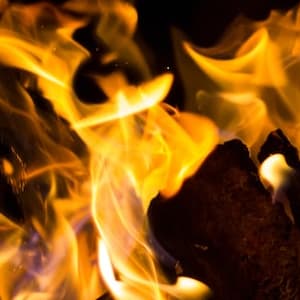hair-on-fire: Idiom Meaning and Origin
What does ‘hair-on-fire’ mean?
The idiom "hair-on-fire" is used to describe a state of extreme panic or urgency, often caused by a dangerous or urgent situation. It implies a sense of being in a state of panic or chaos, similar to having one's hair literally on fire.

Idiom Explorer
The idiom "in a state" means to be in a state of distress, anxiety or confusion.
An idiom used to describe someone who is in an emotional or mental state of extreme agitation, distress, or confusion.
The idiom "hot under the collar" means to become angry or agitated, often due to a frustrating or irritating situation.
The idiom "hot and bothered" means to be agitated, flustered, or excited, often due to stressful or challenging circumstances.
The idiom "hit the roof" means to become very angry or furious about something.
The idiom "hit the fan" is used to describe a situation where something goes terribly wrong or chaotic, often as a result of a secret or scandal being revealed. It implies a sudden and explosive response to the situation.
The idiom "hissing hot" is used to describe something that is extremely hot or scalding. This expression conveys the intense heat and the potential danger associated with it.
The idiom "have someone by the short hairs" means to have someone in a position of complete control or power, making them unable to escape or avoid a certain situation or demand.
The idiom "hang by a thread" means to be in a very precarious or vulnerable situation, where failure or disaster is imminent.
The Exploding Panic
The idiom "hair-on-fire" is a vivid expression that originated in the United States in the early 2000s. It symbolizes a state of extreme panic or distress, where someone may feel as if their hair is literally on fire. This idiom has become widely popular and is used to convey a sense of urgency, intensity, and desperation.
The idiom "hair-on-fire" is an apt metaphor for situations or people that are in a right state of chaos and panic. When someone is described as having their hair on fire, it means that they are in such a dire situation that they are metaphorically panicking or acting frantically. It is commonly used in informal conversations, storytelling, and various media to add emphasis and create a vivid image of extreme urgency.
The hair-on-fire expression is believed to have originated from the literal act of having one's hair on fire, which is inherently dangerous and alarming. By applying this visual metaphor to a person or situation, it effectively communicates the level of fear, danger, and urgency involved.
keep one's hair on is a related idiom that encapsulates the importance of staying calm and composed in challenging situations. When faced with a hair-on-fire situation, it is crucial to keep one's hair on and approach the problem logically and rationally. Panicking or acting in a frenzied manner only exacerbates the situation and hinders the ability to find a solution.
In a right state is another idiom related to hair-on-fire, and it emphasizes the state of chaos, confusion, or disarray that may accompany such intense situations. When someone is in a right state, it means that they are overwhelmed, anxious, or highly agitated by the circumstances at hand. This idiom further highlights the extreme emotional state that can be associated with having one's hair on fire.
hit the roof is another commonly used idiom that connects with the hair-on-fire expression. When someone hits the roof, it means that they are extremely angry, agitated, or outraged. This idiom can be applied to a hair-on-fire situation if the distress and urgency lead to a person becoming exceptionally upset or losing their temper.
It is important to note that these idioms serve as supplementary expressions for hair-on-fire, enhancing the understanding and impact of the original idiom. Each idiom provides a unique perspective on the emotional and mental state of individuals experiencing a hair-on-fire situation.
The hair-on-fire expression has gained significant popularity in recent years, particularly due to the advent of social media and internet culture. Its concise and expressive nature makes it well-suited for online communication, where brevity and impact are key. This idiom has permeated various aspects of everyday language and is commonly used in personal anecdotes, news reports, and even political discourse.
"hair-on-fire" is a powerful idiom that vividly captures the intensity and urgency of a situation or emotional state. Its origins in American culture and its subsequent widespread usage illustrate its resonance and lasting impact. By incorporating related idioms such as "keep one's hair on," "in a right state," and "hit the roof," the full spectrum of emotions and reactions associated with hair-on-fire situations can be conveyed effectively.
Example usage
Examples of how the idiom "hair-on-fire" can be used in a sentence:
- Her presentation was so engaging, it was like watching someone with their hair on fire.
- When she realized she was late for her flight, she ran through the airport with her hair on fire.
- The team worked with a sense of urgency, tackling the problems with their hair on fire.
More "Intensifiers" idioms



